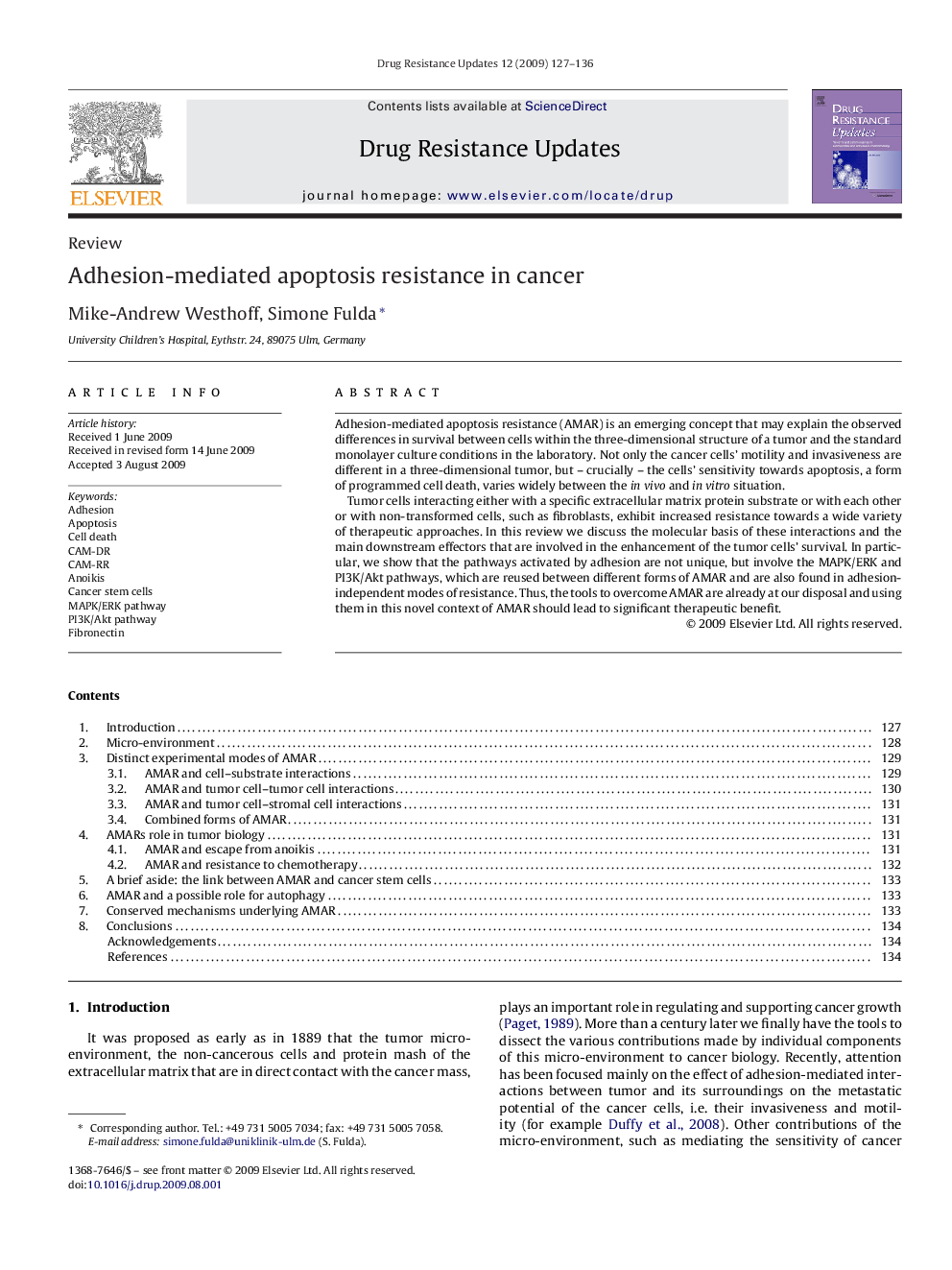| Article ID | Journal | Published Year | Pages | File Type |
|---|---|---|---|---|
| 2120496 | Drug Resistance Updates | 2009 | 10 Pages |
Adhesion-mediated apoptosis resistance (AMAR) is an emerging concept that may explain the observed differences in survival between cells within the three-dimensional structure of a tumor and the standard monolayer culture conditions in the laboratory. Not only the cancer cells’ motility and invasiveness are different in a three-dimensional tumor, but – crucially – the cells’ sensitivity towards apoptosis, a form of programmed cell death, varies widely between the in vivo and in vitro situation.Tumor cells interacting either with a specific extracellular matrix protein substrate or with each other or with non-transformed cells, such as fibroblasts, exhibit increased resistance towards a wide variety of therapeutic approaches. In this review we discuss the molecular basis of these interactions and the main downstream effectors that are involved in the enhancement of the tumor cells’ survival. In particular, we show that the pathways activated by adhesion are not unique, but involve the MAPK/ERK and PI3K/Akt pathways, which are reused between different forms of AMAR and are also found in adhesion-independent modes of resistance. Thus, the tools to overcome AMAR are already at our disposal and using them in this novel context of AMAR should lead to significant therapeutic benefit.
